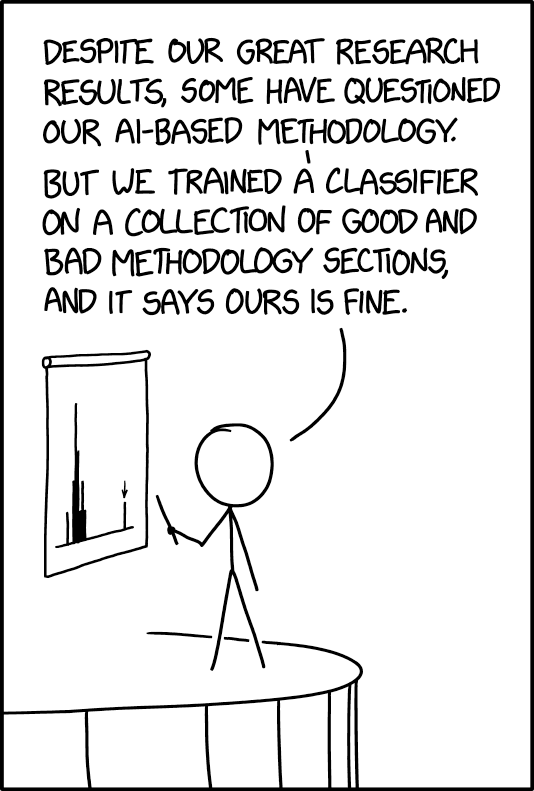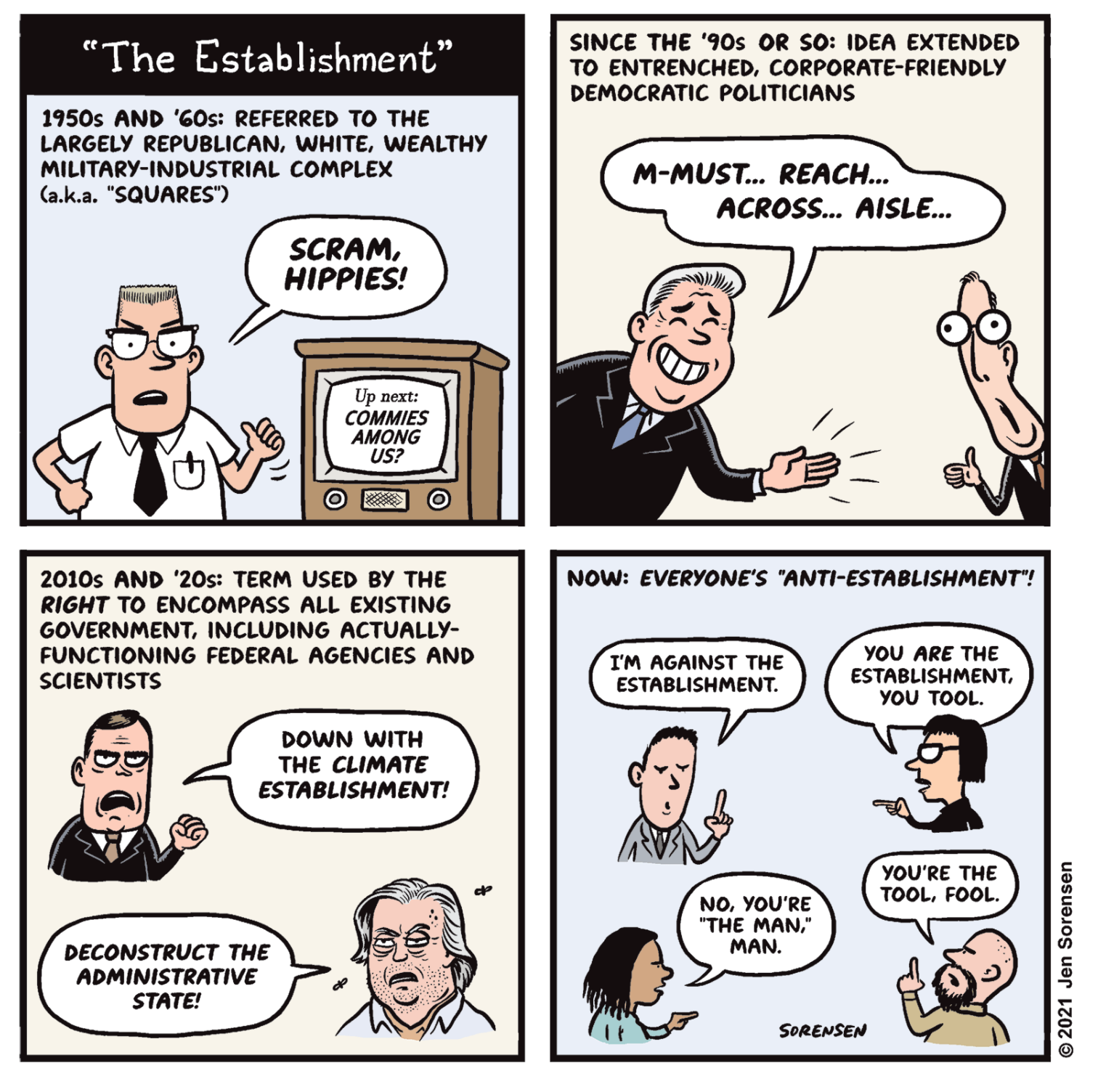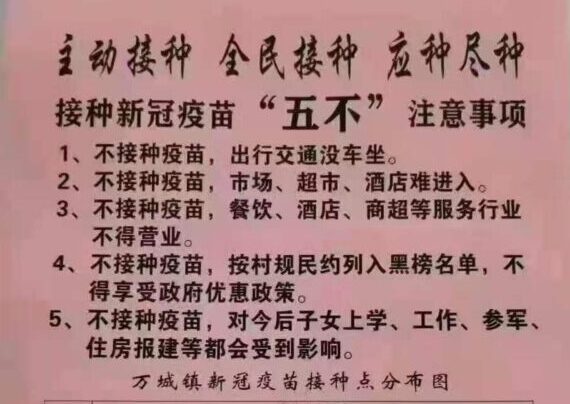Odoriferous Mandarin term for "copycat"
A gēnpìchóng 跟屁虫 (lit., "follow-fart-bug / worm") is somebody who tags along after someone else so as to smell his farts, i.e., someone who follows another person all the time, a copycat, a shadow, a flatterer, sycophant, boot / ass licker, kiss-ass, yes man.
And here's a cute little tutorial about how to be a gēnpìchóng:
Read the rest of this entry »
Prehistoric notation systems in Peru, with Chinese parallels
This morning, by chance, I learned about the great urban center of Caral in Peru, 120 miles north of Lima. It was occupied between ca. 26th century BC and 20th century BC and had more than 3,000 inhabitants. It was said to be the oldest urban center in the Americas and the largest for the 3rd millennium BC. Caral had many impressive architectural structures, including temples, an amphitheater, and pyramids that predate the Egyptian pyramids by approximately a century.
What attracted my attention the most, however, is this:
Among the artifacts found at Caral is a knotted textile piece that the excavators have labelled a quipu. They write that the artifact is evidence that the quipu record keeping system, a method involving knots tied in textiles that was brought to its highest development by the Inca Empire, was older than any archaeologist previously had determined. Evidence has emerged that the quipu also may have recorded logographic information in the same way writing does. Gary Urton has suggested that the quipus used a binary system that could record phonological or logographic data.
(source)
Read the rest of this entry »
Cancel Olympics
Recently published in the Wall Street Journal:
"Tokyo’s Anti-Olympic Movement Ask: Why Haven’t the Games Been Canceled? The Japanese public remains opposed to the Tokyo Olympics as coronavirus cases surge across the country", by Alastair Gale, WSJ, April 14, 2021
Read the rest of this entry »
The Wool Road of Northern Eurasia
We all know about the Silk Road (which is actually a recent term), and some of us also know about the Bronze Road, the Iron Road, the Horse and Chariot Road, the Fur Road, the Glass Road, the Spice Road, and the Tea Road. Now we really have to take seriously the existence of a Wool Road.
As I have often noted, I began my international investigation of the mummies of the Tarim Basin as a genetics project in 1991, since that was around the time that it became possible to study ancient DNA. After four years of diligent collection and analysis, I grew disenchanted with the expected precision of genetics research, and in 1995 I returned to Eastern Central Asia (ECA) with Elizabeth Barber and Irene Good, prehistoric textile specialists, to study the archeologically recovered textiles of the region. The results of their work turned out to yield tremendously valuable and revealing results about the origins and technology of the ancient textiles we examined.
Read the rest of this entry »
Aspects of the Theory of Syntithology
From John Brewer:
Not sure if Language Log typically has a "travel page" section, but those readers in or near the NYC area who are vaccinated or otherwise not locked down might be interested in an exhibit at the Grolier Club in Manhattan that I visited a few days ago and will remain there until mid-May. It's called "Taming the Tongue in the Heyday of English Grammar (1711-1851," and includes sixty-odd different volumes from that time frame offering analysis, instruction, prescriptivist guidance, and/or complete crackpottery on the subject. They are all from the personal collection of the famous and/or notorious Bryan Garner. Admission is free but you need to book a time-slot 48 hours in advance via their website so they can limit the number of visitors to a pandemic-suitable total.
More details here (you may need to click on the "Second Floor Gallery" tab).
Read the rest of this entry »
Dissension over the role of the alphabet in literacy acquisition in the PRC
A graduate student from the PRC told me that the situation regarding instruction in Hanyu Pinyin has become quite chaotic in recent years in China. Hànyǔ Pīnyīn 汉语拼音 ("Sinitic Spelling"), or Pīnyīn 拼音 ("Spelling") for short, is the official PRC Romanization of Modern Standard Mandarin (MSM), i.e., Pǔtōnghuà 普通话.
For many decades, it used to be that all students — beginning in first grade of elementary school — learned to read and write via Pinyin. Indeed, under the program known as "Zhùyīn shìzì, tíqián dú xiě 注音识字,提前读写" ("Phonetically Annotated Character Recognition Speeds Up Reading and Writing"), or "Z.T." for short, which actively encouraged children to use Pinyin Romanization for characters they were unable to write, the promotion of Pinyin continued well into upper grades. See "How to learn to read Chinese" (5/25/08). In the last few years, however, it seems that instruction in Pinyin — at least in some schools — has become "optional". Some teachers are simply not teaching the basics of pinyin. As a result, many students are no longer competent in it, so that when they get to the dreaded gaokao (National College Entrance Examination [NCEE]), where mastery of pinyin is required, they're not prepared for that part of the exams. Parents are complaining.
Read the rest of this entry »
Genetic evidence for the peopling of Eastern Central Asia during the Bronze Age and Early Iron Age
Summary article on the genetics of the Tarim Basin and Dzungarian Basin and surrounding areas:
"Ancient Xinjiang mitogenomes reveal intense admixture with high genetic diversity"
Wenjun Wang, Manyu Ding, Jacob D. Gardner, Yongqiang Wang, Bo Miao, Wu Guo, Xinhua Wu, Qiurong Ruan, Jianjun Yu, Xingjun Hu, Bo Wang, Xiaohong Wu, Zihua Tang, Alipujiang Niyazi, Jie Zhang, Xien Chang, Yunpeng Tang, Meng Ren, Peng Cao, Feng Liu, Qingyan Dai, Xiaotian Feng, Ruowei Yang, Ming Zhang, Tianyi Wang, Wanjing Ping, Weihong Hou, Wenying Li, Jian Ma, Vikas Kumar, and Qiaomei Fu
Science Advances 31 Mar 2021:
Vol. 7, no. 14, eabd6690sss
DOI: 10.1126/sciadv.abd6690
"Xinjiang", a contentious political designation, may geographically be better situated by referring to it as "Eastern Central Asia" (ECA).
Because I have been primarily interested in the initial settling of the Bronze Age peoples and their languages, the quotations below focus on that aspect of the article, though the article as a whole takes into account the Iron Age and Historical Era as well.
Read the rest of this entry »
"Configurations of the earth" and "patterns of the heavens" in Sinitic toponymy
The latest issue of Sino-Platonic Papers:
James M. Hargett, "Anchors of Stability: Place-Names in Early China", Sino-Platonic Papers, 312 (April, 2021), 1-41. (free pdf)
ABSTRACT:
The use of place-names in China predates its written history, which extends back at least 3,500 years. While the basic principles of toponym formation in ancient China are similar to those in other cultures around the world, early in its history a process took place that led to a standardization of the practices by which place-names were formulated. The central argument in this essay is that the essential features of place-name nomenclature in China were already in place before the Qin unification in 221 BCE.
Read the rest of this entry »
The five don'ts of novel coronavirus vaccination in Hainan, China
A notice issued in Wancheng, a town in Hainan Province on March 31 warning people of consequences if they refuse to take vaccines. (Screenshot via Weibo)
Read the rest of this entry »





